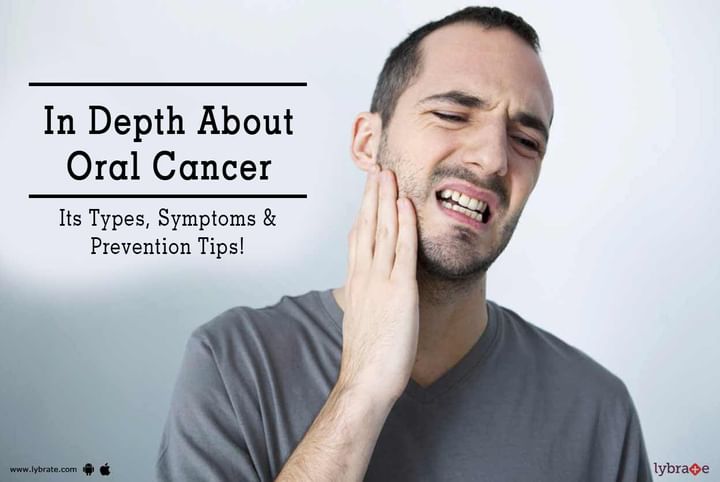In Depth About Oral Cancer - Its Types, Symptoms & Prevention Tips!
Oral cancer is the name given to cancer that develops in the tissues of the mouth or oral cavity. If you interact with a specialist, you will know that oral cancers belong to a larger group of cancers called head and neck cancers. And more importantly, oral cancers are one of the most preventable cancers. You may already be aware that cancers develop when cells begin to divide indiscriminately forming malignant tumours. In oral cancers, the dividing cells are the ‘squamous’ cells found in the lining of your mouth, tongue, and lips.
An implausible fact about oral cancers is that these are most often discovered after they have spread to the lymph nodes of the neck- which means at the stages III and IV. All cancers including oral cancers become more difficult to cure at these later stages. This is why early detection is key to surviving oral cancer.
Types of oral cancers-
- Oral cancers, to be precise, including cancers of the:
- Lips
- Tongue
- Gums
- Cheek
- The floor of the mouth
- The roof of the mouth, including the hard and soft palate
Usually, it’s your dentist who is the first to notice the first signs of oral cancer.
Risk factors-
Tobacco use is the biggest risk factor for oral cancer. Tobacco includes smoking cigarettes, cigars, hookahs, and pipes, as well as chewing tobacco. Alcohol is another big risk factor. So, if you are one of those heavy drinkers, be aware of the scourge of oral cancer and get yourself tested periodically to rule out this killer. The risk of oral cancer also increases exponentially when both alcohol and tobacco are used together.
Other important risk factors are:-
- HPV infection i.e. human papillomavirus is a sexually transmitted virus that spreads through unprotected vaginal as well oral sex
- Chronic sun exposure on the face, especially the lips
- Family history of oral or other types of cancer
- Men are more susceptible to oral cancers
- Being older than 45
- Radiation exposure
- Having any other form of head and neck cancer
Symptoms of oral cancer-
- Sore lip or mouth that is not healing
- Any growth inside your mouth
- Bleeding from the mouth, including jaws
- Loose teeth
- Difficulty or pain while swallowing
- Major trouble wearing dentures
- A lump in neck or cheek
- Chronic earache
- Serious weight loss
- Numbness in lower lip, face, neck, or chin
- Any coloured patch in the mouth or lips
Diagnosis of oral cancer-
- Diagnosis starts with a physical exam of your mouth. The physician will examine the roof and floor of your mouth, the back of your throat, tongue, and cheeks, and the lymph nodes in your neck.
- If your doctor finds any tumour, growth, or suspicious lesions in your mouth, she/he will perform a biopsy to collect cells from a tumour. This tissue is then examined for cancerous cells.
- Other tests include X-rays to see if cancer cells have spread to your jaw, chest, or lungs; a CT scan to check for and reveal any tumours in your mouth; PET scan to see whether cancer has travelled to the lymph nodes or other organs like the lungs.
Prevention-
- An excess of sun exposure on your face and lips increases the risk of oral cancer so you can start reducing the danger of getting this cancer by using a lip balm or cream with SPF regularly.
- Another way to reduce risk is alcohol and tobacco cessation.
- Eating a balanced diet containing fruits and vegetables
- Removing your dentures at night and using them the next day only after cleaning them
- Visiting your dentist on a regular basis so that she/he can warn you about any alarming change in your mouth.
Why is homeopathy the best mode of treatment?
Homeopathy is the best mode of treatment in treating problems like oral cancer. It doesn't recommend the same medication for all the patients suffering from the same disease. It suggests a holistic approach as per the need of every individual patient to get the problem resolved. In this way, homeopathy never leads to any sort of complications and roots out the biggest medical conditions as well.



+1.svg)
